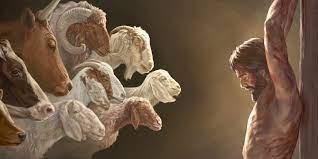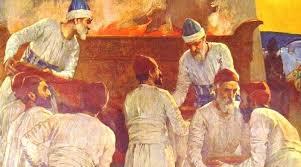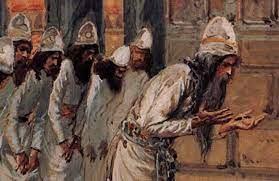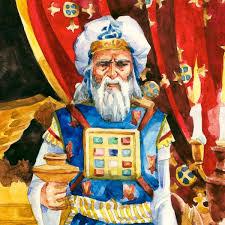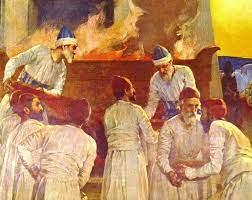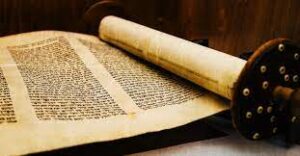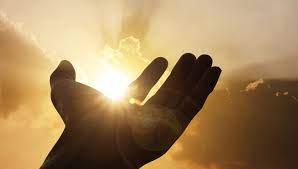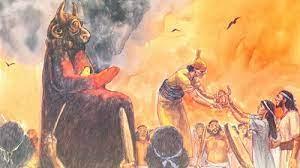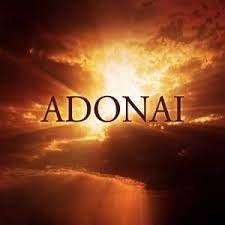Dv – Holiness of the Seven Feasts 23:1 to 25:55
Holiness of the Seven Feasts
23:1 to 25:55
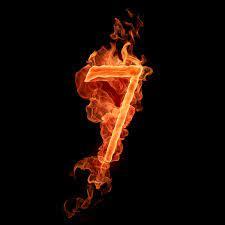
Celebrate the feasts of the LORD. This is a real big issue in the Bible, but it is even a bigger issue in Christianity. The issue is big in the Church, not because what is written in the New Testament, but because what has happened in the Catholic church between the 4th and the 6th century A.D. or Anno Domini, “In the year of our Lord” (or the way that it is called universally, C.E. – or Christian Era, to ease the minds of non-Christians who might object to this implicit acknowledgement of Yeshua as Lord) During that time, and even starting a little earlier, the paganized Christian churches were alienating themselves from Isra’el, and even from the Jewish disciples of Yeshua. They were alienating from Isra’el for clear political internal Roman issues. It is all well documented, and there is no question about it. (If you are interested to see some of the most striking documents of this systematic anti-Jewish, anti-Torah and anti-Old Testament campaign that the Catholic church set in motion, please read John Chrysostom, Against the Jews. Homily 3). Another good book to read on this subject is The Anguish of the Jews: Twenty-Three Centuries of Antisemitism.
Messiah and the apostles kept all the biblical feasts of ADONAI, and this is clear from the B’rit Chadashah itself. In fact, Paul commands the church in Corinth to keep the Passover under the inspiration of the Ruach Ha’Kodesh, “For indeed Christ, our Passover, was sacrificed for us. Therefore, let us keep the feast, not with old leaven, nor with the leaven of malice and wickedness, but with the unleavened bread of sincerity and truth” (First Corinthians 5:7-8).
The seven festivals (the mo’adim) of Leviticus are the only place in the Bible where we find any commandment concerning worship. Each festival bearing with it a specified time for a holy assembly of the redeemed community to worship the Lord. What is even more peculiar is the fact that even in the B’rit Chadashah, there are no commanded times of worship. To be sure, believers are taught to worship, but there are no specified days on which to do it, except, perhaps for the observance of the Lord’s Supper.
Does this mean that if a believer in Yeshua is not born physically Jewish, he or she has no commanded worship times? Did God forget about this kind of a person? Are specified times of worship important? Of course they are! Romans Chapter 11 and Leviticus Chapter 23 provide us with the answer (see the commentary on Romans, to see link click Cz – The Illustration of Isra’el’s Future). It teaches that Gentile believers are grafted into the olive tree which, in context, is Isra’el. This means, among other things, that Gentile believers are part of the commonwealth of Isra’el.
But what does that look like? What is the evidence of this if Gentiles don’t do any of the things which characterize Isra’el? One point of identification is Leviticus 23 and the mo’adim cycle, which is like a dance circle. You can join in at any point, it does not matter where. Eventually as the circle goes around and around, you will always come to the places where you missed when you joined. If someone joins in at Sukkot, eventually they will come to Pesach. So come join the circle, or should I say, come join the cycle. If the Church were to celebrate these mo’adim it would accomplish two things. First, it would provide Gentile believers in Yeshua regular times of worship and praise in a systematic and logical order. Second, it would afford Gentile believers in Messiah a point of contact or identification with the nation into whom they are grafted.416
Unfortunately, today, the Messianic community is treated like it doesn’t exist. When the leaders of the first Messianic Community met (see the commentary on Acts Bs – The Council at Jerusalem), the main issue was, “Can these Gentiles really be believers?” And they responded positively to that question (see Acts Bt – The Council’s Letter to the Gentile Believers). Yet, today, that question seems to have been reversed by the majority of Christian churches and denominations, who ask “Can these Messianics really be believers?” Far too often, the response to where a Jew should go if saved, the answer is “Find a good bible believing church!” Very few churches follow Paul’s command to keep the Passover feast, and fewer still systematically teach through books of the TaNaKh. If you are sitting under a pastor who teaches through books of the TaNaKh you are fortunate indeed! Fewer still (if any) follow the other feasts of the Jewish biblical calendar. This is why my wife and I attend a Messianic congregation. Implicit in Paul’s admonition to keep the Passover feast, is the idea of celebrating them all. Please contact me if you are a member of a church that celebrates all seven of the biblical feasts.
Finally, the seven biblical feasts all point to the ministry of Messiah. If we claim to be “people of the Book,” then we should be interested in learning about Yeshua: (1) The festival of Pesach (the Passover) points to the death of Messiah, (2) the festival of Hag ha’Matzah (Unleavened Bread) points to the sinlessness of His sacrifice, (3) the festival of Rasheet (First Fruits) points to His resurrection, (4) the festival of Shavu’ot (Pentecost) points to the birth of the Church, (5) the festival of Rosh ha’Shannah (Trumpets) points to the Rapture, (6) the festival of Yom Kippur (the Day of Atonement) points to the Great Tribulation, and (7) the festival of Sukkot (Tabernacles) points to the Messianic Kingdom.





